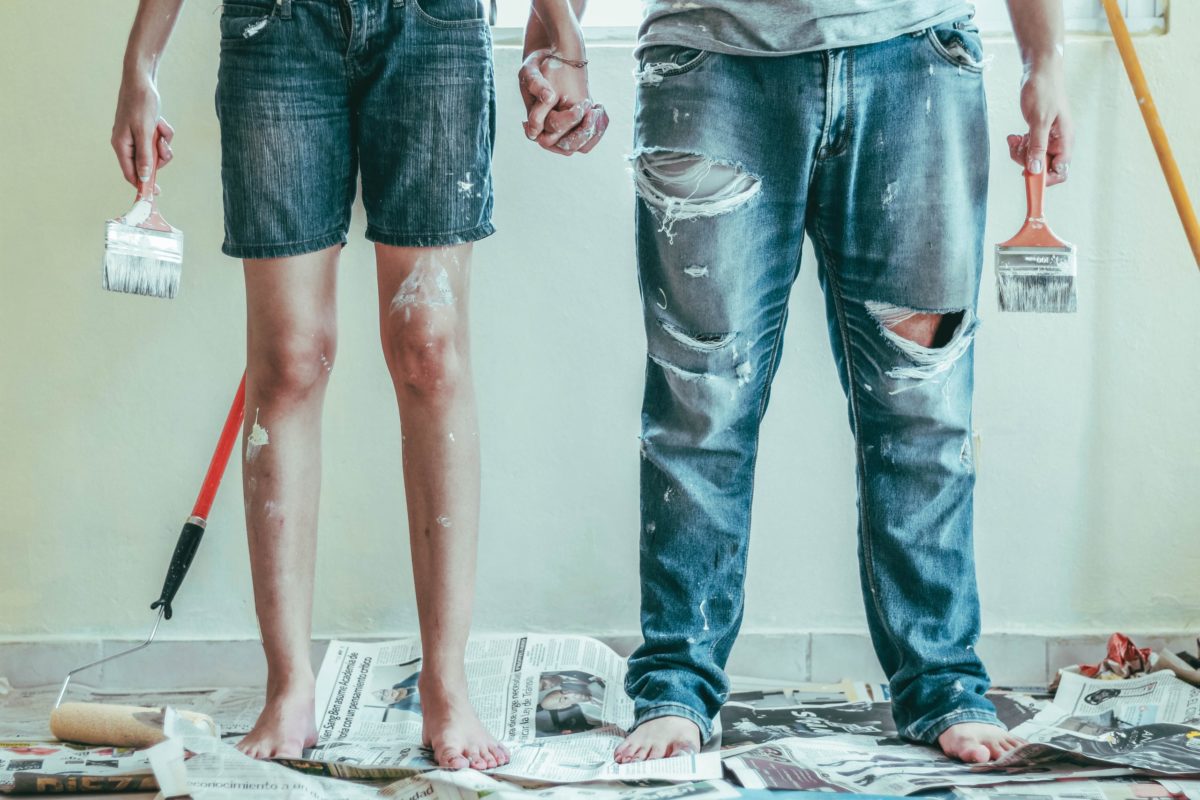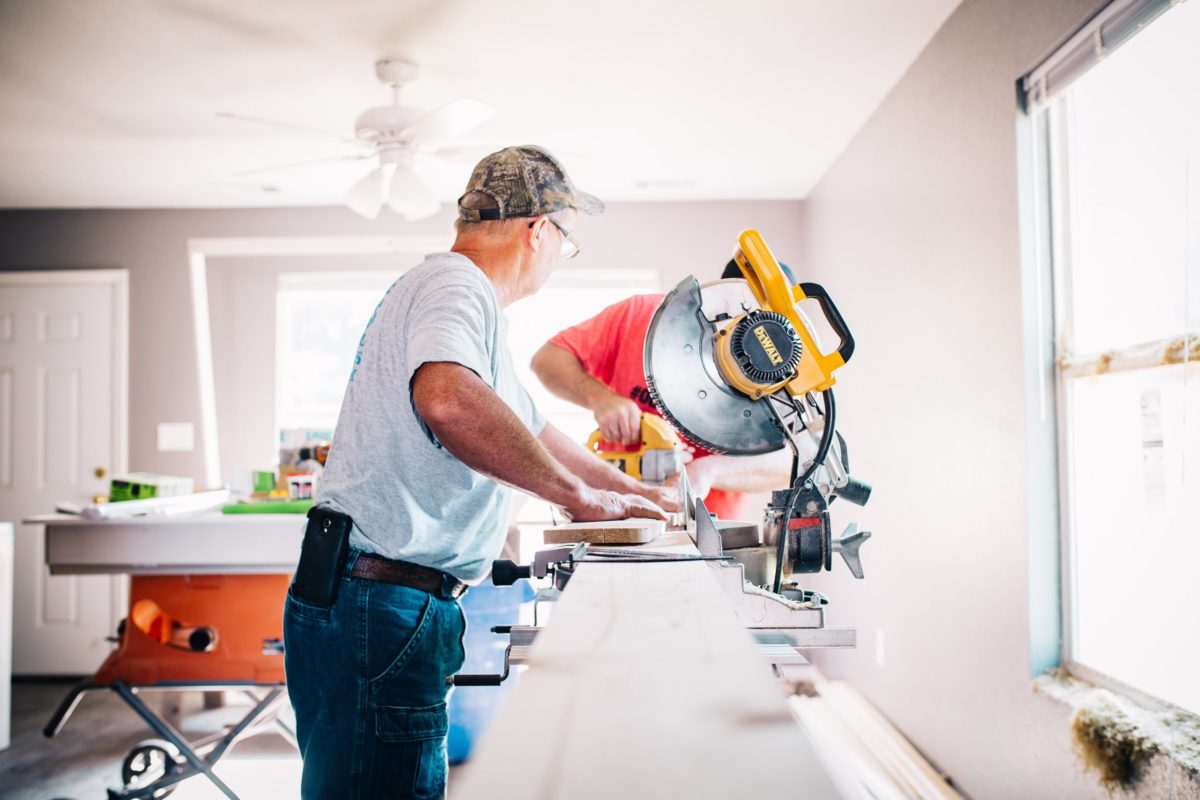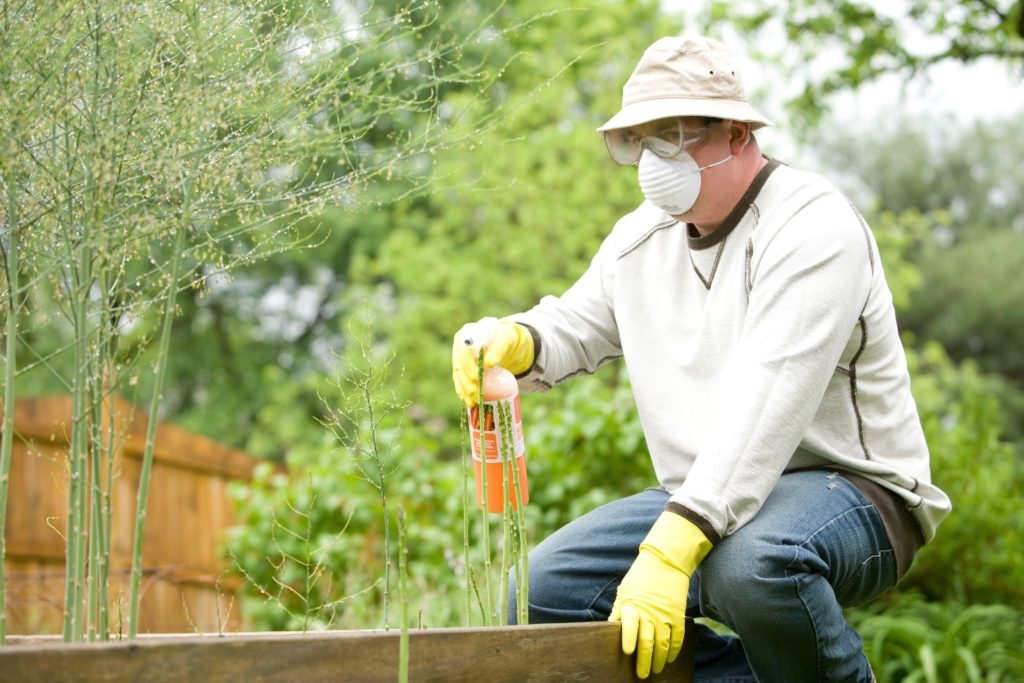Do-it-yourself (DIY) is like art; a small piece of you goes into every project you complete. DIY refers to making repairs at home rather than employing a professional. When people DIY, they get a strong sense of accomplishment and pride. DIY can also save a lot of money.
Before taking on a home project, we can estimate how much we’d save or spend on a project by doing it ourselves. Knowing our limits is vital for making responsible decisions and reducing needless expenses and risks. Let’s look at how to realize it’s time to hire a contractor instead of completing repairs yourself.

6 questions should you ask yourself before taking on a DIY project
People tend to overestimate their abilities. You know what I’m talking about if you’ve ever heard of the Dunning-Kruger effect. Self-honesty is critical when evaluating how rational you are to take on a specific project. There are some questions to ask yourself before taking on a new remodeling task.
1. Do you have the tools to do the project yourself?
Use caution with projects that require special tools.
One of the reasons people do projects themselves is to save money on labor. However, some projects require special equipment, and quality tools are not cheap. The price of some equipment could make an otherwise affordable project rather expensive.
If we don’t already have the tools we need for the project, we may not want to spend the extra money on equipment we don’t already have.
2. Do you have experience with the tools or materials?
There is a learning curve for everything. Anyone can pick up a screwdriver, but it takes practice using tools to become proficient. If we’re not skilled laborers, we’ll need extra time to complete tasks that would take less time for a professional.
Some material is too costly to use for learning. Surprisingly, basic materials like wood 2x4s are expensive. Learning to use tools with the material we’re unfamiliar with is a surefire way to spend more on supplies. We’re sure to muck stuff up if we don’t have the work experience. Consider your experience level with the tools and materials when taking on a new project.
3. Do you have the time to complete a project?
Construction projects have a funny way of taking longer than planned. Stuff breaks at the worst time and sourcing parts can come with delays. Therefore, we must hope for the best and plan for the worst. Save projects with strict deadlines for professionals with the bandwidth to take on the job.
4. Do you have enough hands to complete the project?
Let’s face it; some projects are more extensive than a single person. So, if we need more than two hands, we must reconsider DIY. Sure, anyone can hold a flashlight. But, we’re better off outsourcing the work if we need extra hands that think for themselves.
5. How much more will it cost in the long run if things don’t go as planned?
We’ll want to draft a worst-case scenario budget before tearing into a new remodeling task. Naturally, the worst-case plan is when you hire a skilled worker to take over where you left off.
We’ll have to do the job twice if we don’t do it correctly the first time. Don’t start a DIY project until you know the cost of a re-do. Buying something nice is always better than buying something twice.
6. Is there any risk of injury that could interrupt your regular plans?
Part of being a responsible adult is knowing your limits. Even though we may feel like taking on the world, we’re subject to the same risks as everyone else. Every project comes with its own set of hazards, and each person has unique risks to consider.
Some jobs are more physically demanding than others. If the DIY project could prevent you from performing your regular activities for at least a day or could cause you to need a doctor, you’ll want to defer the work to the professionals.
The last thing anyone wants is an expensive injury from a project they were trying to do themselves to save money.

5 Repairs you should avoid DIY
At some point, it’s more rational to hire someone with experience. Specialized jobs will require expertise with materials and tools that we can’t learn from YouTube videos. There are a variety of repairs that are better suited for experts. Time, energy, and safety will offset what we pay in labor.
Knowing which repairs to avoid will help us plan our remodeling budgets and repair timelines. We can usually get free estimates from pros who use invoice and billing software for contractors to bid on their repairs. It’s essential to shop around to get the best price.
1. Roof Repairs
If you don’t have previous roofing experience, you won’t want to learn by doing repairs yourself. Roofers must be careful to avoid falls, tar burns, and electrocution. Roofing is a high-risk occupation.
Thankfully, professionals have the experience, training, and insurance for navigating the dangerous work conditions of roof repair. People who fear heights should be happy to outsource this type of work. Either way, this isn’t the type of thing to do independently.
2. Electrical Work
The dangers an electrician encounters are not much different from a roofer. Electricians face the risk of electrical burns, falls, and exposure to toxic materials. It’s always best to leave this type of high-risk work to professionals.
3. Water Damage
Water damage can add up rapidly. Damage from leaks, broken pipes, overflows, floods and natural disasters leave homes in disarray. Untended damage can lead to warped floors, discolored paint, and mold infestation. Water damage restoration requires real attention from trained professionals. This is not the type of damage where we can simply put a fresh coat of paint on top.
4. Mold & Mildew Removal
Do-it-yourself solutions to mold and mildew removal are unlikely to resolve the problem. Instead, we need pros to use special equipment, like ozone generators, to kill mold spores. Sure, bleach or paint might temporarily treat a mold issue, but it will keep returning. Mold and mildew removal by professionals is the only way to treat the root cause of the problem correctly.
5. Pest Control
A pest issue can develop at an exponential rate. Solutions sold at big box stores can be effective if we begin them in time. But, they won’t be effective against substantial infestations.
A significant infestation is not something to attempt to fix yourself. You’ll need to bring in professionals to deal with cockroaches, bed bugs, termites, rats, mice, wasps, ants, and mosquitoes. Of course, trained pros mitigate all of the hazards of pest control.

What are the best projects to do yourself?
The best DIY projects are the ones you already have the tools and experience to complete. Besides the gear and the know-how, projects that we can finish in a day or two make the most sense to DIY. Of course, it’s best if the project won’t leave you laid up with sore muscles for a week. Remember to focus on projects you can afford to outsource if you discover you’ve bitten off more than you can chew after starting the work.
The best types of home remodeling DIY projects include things like:
- Interior paint or wallpaper
- Installing a closet organizer
- Replacing electric appliances
- Upgrading the mailbox
Final Thoughts
We want to make sure any work we do ourselves is within our ability. As long as we’re honest with ourselves about our knowledge and experience, we should be able to figure out which we’re prepared to take on. We wouldn’t want to embarrass ourselves by bringing on a pro to finish a job we started but couldn’t complete.
Remember that many DIY suggestions are not the best long-term repair solution. Just because we can save a few bucks by trying to do something with a tutorial on our own, it doesn’t mean we’ll be doing the job the right way.
We can save a great deal of time and money by contracting the big jobs to skilled workers. Save the easy stuff for yourself, and then pay someone else to do the risky work.
Summary
You’ll know you’re prepared for a DIY project if you have the experience, tools, and time. Ask yourself the questions above to flush out any self-serving bias and consider the trade-offs. Avoid high-risk repairs that require years of industry experience. Save the easiest projects for yourself. Pay people to do the things they’re good at so you can enjoy fixing the little things.
